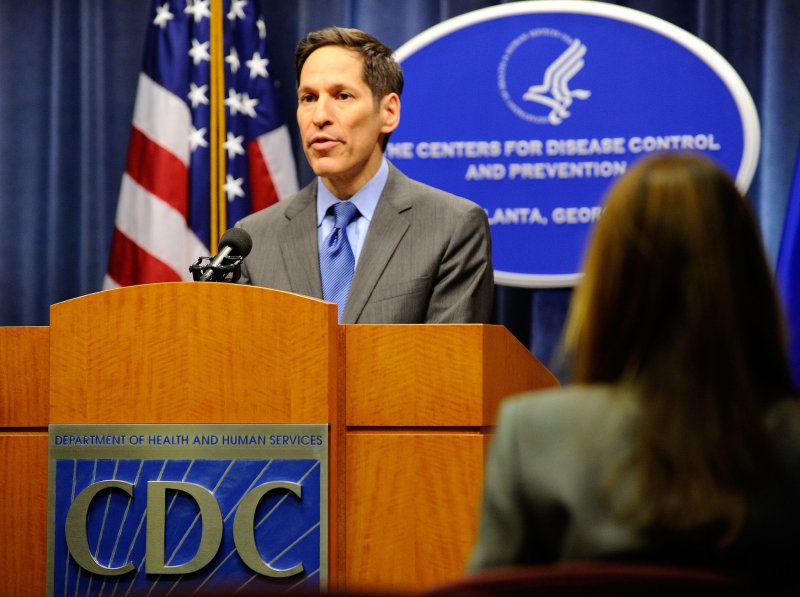CDC Director Tom Frieden provides an update on the latest developments involving the deadly Ebola virus and its infection of a Texas healthcare professional during a media briefing at CDC headquarters on Oct. 14 in Atlanta. UPI/David Tulis |
License Photo
NEW YORK, Oct. 15 (UPI) -- Wall Street is looking with worry at the Ebola virus crisis.
The effect of the concern over the spread of the virus and its economic consequences are among many factors in market psychology. But some analysts have made a connection between the 370-point drop in the Dow Jones industrial average Tuesday and the announcement by the Centers for Disease Control and Prevention that a second healthcare worker in Dallas has tested positive for the virus.
After news broke that the second victim flew on a commercial aircraft the day before the diagnosis, the price of shares in American Airlines Group and Delta Air Lines fell sharply. Seaport Securities analyst Jason Weisberg told CNN, "The fear is that people will be afraid to fly."
Although the concern over the Ebola virus has not seriously impacted investments, shares of major businesses in the hotel and cruise industries have fallen. Royal Caribbean Cruises and Carnival Corp. & PLC have fallen by 20 percent compared to a year ago, and Hilton Worldwide and Starwood Hotels & Resorts Worldwide have also fallen.
A study by the World Bank predicted a worldwide economic cost of $32.6 billion by the end of 2015 if the Ebola virus spreads significantly beyond western Africa, where over 4,000 have died. A report by Deutsche Bank's Andrew Zarnett noted the SARS epidemic of 2003 cost Asian airlines about $6 billion, The New York Times reported.
An adviser to the World Bank report, Marcelo Giugale, said the economic impact of the Ebola virus will not be contained to the costs of drugs and treatment.
"What makes all this very interesting is that the final economic toll of Ebola will not be driven by the direct costs of the disease itself — expensive drugs, sick employees and busy caregivers. It will be driven by how much those who are not infected trust their governments."















